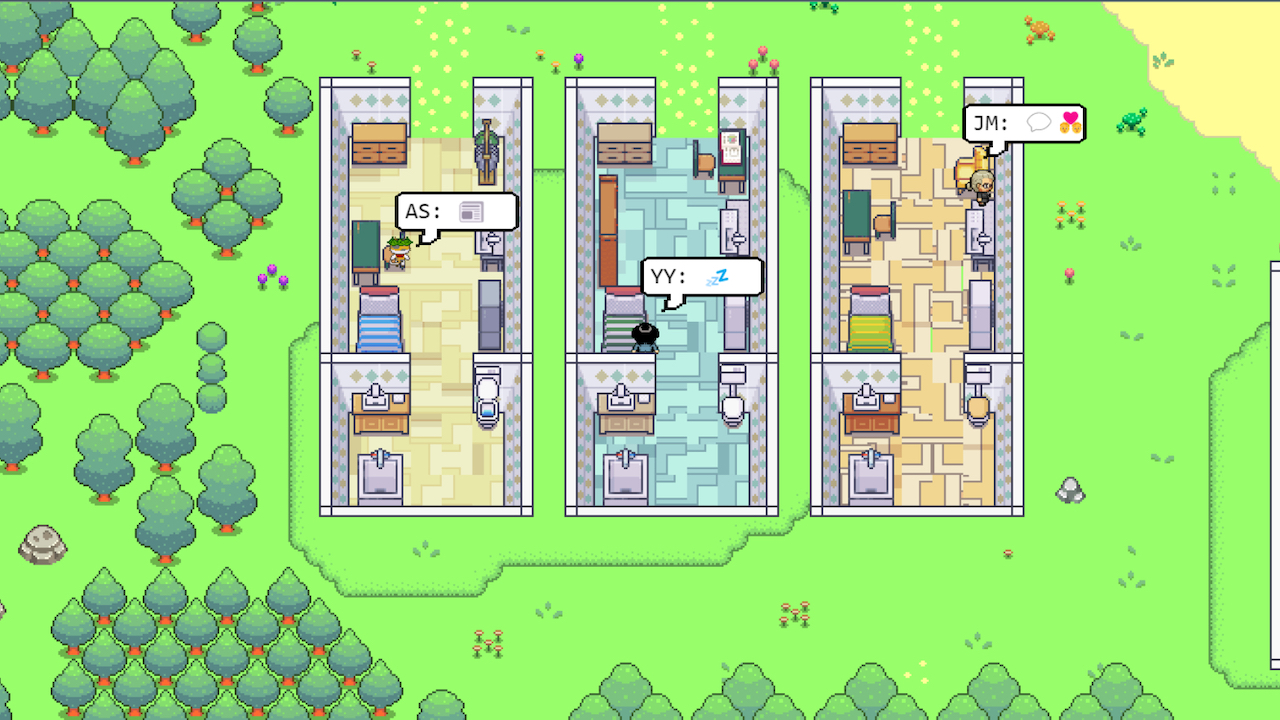Most people have played The Sims at some point in their lives, but like many games, the computer artificial intelligence (AI) can be underwhelming. Fortunately, the AI revolution has made significant progress in recent years, and with the integration of ChatGPT, it has finally reached video games, taking character interactions to a whole new level.
Enhancing video game AI with ChatGPT
Google, in collaboration with Stanford University, has developed human-like video game characters that use AI to power their decision-making, aiming to create a more intricate and realistic gaming world. The game, called Smallville, follows 25 little characters in their daily lives as they act as humanly as possible, engaging in typical routines like sleeping, eating, and conversing with each other. Each character has their own life and experiences it as if they were real.
In a preprint paper not yet peer-reviewed, the authors describe generative agents that wake up, cook breakfast, and go to work. Artists paint, and authors write, while these agents form opinions, interact, and have conversations. They remember and reflect on past events while planning for the next day. The paper outlines an architecture that expands a large language model, such as ChatGPT, to store an agent’s complete experiences in natural language. This allows for the synthesis of memories into higher-level reflections and dynamic retrieval for behavior planning.
Creating a community with AI
Each agent in Smallville is powered by ChatGPT. Researchers provided a single paragraph description for each character, which included background, occupation, relationships with other agents, and even memories. ChatGPT then took over the decision-making based on each agent’s backstory, resulting in a fascinating community.
The agents embraced their given lives and retrieved memories as if they were real. They interacted with each other in full character. The researchers simulated events like a Valentine’s day party, and the agents reacted accordingly. They invited others anonymously and asked each other out on dates. When the “party” occurred, they coordinated to arrive together.
The study concluded that incorporating AI into this small video game allowed it to accurately replicate human social behavior. If models like these could be incorporated into bigger games, it would greatly enhance NPC behavior and immersion. This would create vivid worlds full of authentic interactions.
Regrettably, advanced AI capabilities demand substantial computational power. Generative AIs require extensive hardware to perform well, especially as their abilities expand. Elon Musk’s recent suspected bulk purchase of GPUs for his own version and OpenAI’s latest iteration of ChatGPT, GPT-4, running noticeably slower than the previous generation, demonstrate this issue. Integrating such models into computer games might be too much for most people’s hardware, so it may be some time before we see the Sims: AI edition.













